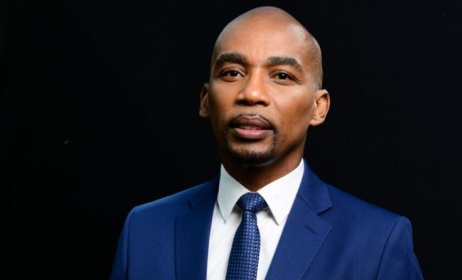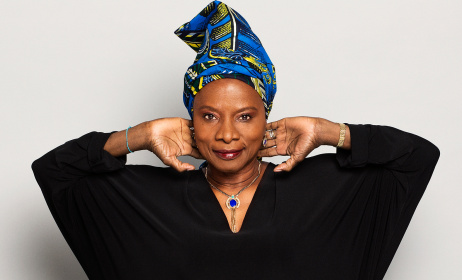Vote to challenge status quo, SAMRO tells young artists
The Southern African Music Rights Organisation (SAMRO) is calling on young people to use their voices and votes to challenge the status quo in the country. The pronouncement was made ahead of South Africa’s local government elections on 1 November.
 Rapper Gigi Lamayne encouraged the youth to use their votes with principle.
Rapper Gigi Lamayne encouraged the youth to use their votes with principle.
SAMRO communication specialist Thabo Nchaupe said that while South Africa had a rich history of political and social activism through music, young artists should enact their legacy of activism than merely celebrate history.
“Music always played a huge role in the struggle against apartheid in South Africa,” Nchaupe said. “The impact of songs opposing apartheid served to raise awareness and generated support for the struggle.”
He implored aspiring artists to use their talents to build personal legacies, and made reference to a number of iconic South African musicians whose names and music became synonymous with the fight for liberation.
“For example, singer and civil rights activist Miriam Makeba was dubbed ‘Mama Africa’ for championing the struggle during the apartheid era, while also becoming an icon of African jazz,” he said. “Similarly, trumpeter and bandleader Hugh Masekela was described as the father of South African jazz. Masekela became well known for his jazz compositions as well as for writing popular anti-apartheid songs such as ‘Soweto Blues’ and ‘Bring Him Back Home’.”
Masekela went into exile in 1961 amid the political unrest that followed the Sharpeville Massacre a year earlier. ‘Bring Him Back Home (Nelson Mandela)’ was released as the lead-off track on his 1987 album Tomorrow. It became a central anti-apartheid anthem demanding for Mandela’s freedom and political change in the then segregationist South African state.
“The list goes on, there is simply no shortage of inspiration that today’s young artists can draw on,” Nchaupe added. “Other noteworthy artists include Brenda Fassie, whose song ‘Black President’ was released in 1990, following Mandela’s release from prison. The track was not only an anti-apartheid song, but also meant to rouse the masses to thank Mandela for his enormous sacrifice. It has since become South Africa’s biggest pro-Mandela song.”
Such brave artists, Nchaupe said, often suffered for their activism: their music was removed from music store shelves and they endured various forms of punishment at the hands of the National Party police.
“These musical giants laid down a powerful legacy and the anti-apartheid songs they wrote became an essential part of South Africa’s social fabric,” he said.
Local rapper Gigi Lamayne weighed in and beseeched young people to cast their votes with principle and reminded them that they had the power to make a difference. “We will never forget the sacrifices made by our older leaders in the fight against racism and inequality. But South Africa needs young voices to help us achieve economic freedom, as well as equal rights to education and other opportunities,” she said.



























Commentaires
s'identifier or register to post comments